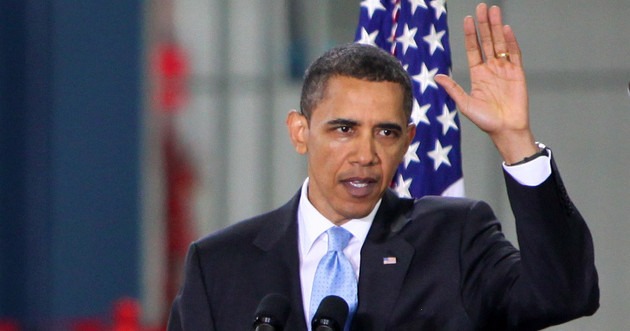Current American policy against ISIS lacks commitment, new strategy needed
3 min read
Steve Jurveston | Flickr
By BRANDON QUINTIN
It has been nearly 15 months since the beginning of Operation Inherent Resolve—the codename for the American intervention against ISIS. Since then, the radical terrorist group has launched a number of sophisticated attacks, signaling to the world that they are far from defeated. The recent attacks, as well as the situation on the ground in the Middle East, should be enough to convince American leadership that the current policy is failing.
On Oct. 31, ISIS destroyed a Russian passenger jet full of vacationers, killing all 224 people on board. Nov. 12, a suicide bombing in Beirut killed 40, and only a day later a large-scale attack was launched in Paris, murdering 129 innocent civilians and sending another 433 to the hospital. These are just the recent major incidents outside of ISIS territory. Within the caliphate, a horrendous scene is taking place. The militant’s barbaric and perverted version of Islam is being forced upon a helpless people. The resulting humanitarian and refugee crisis may be the largest and worst the world has seen since the end of the Second World War.
While our leaders decided to eventually intervene in Iraq and Syria against ISIS, the effort has been half-hearted and lacking any real conviction. President Obama does not see this war as his primary responsibility or issue of concern. During a recent press conference held in Turkey, he stuck to his view that the current policy is working—but admitted that the attacks in Paris represented a “setback.”
Contrary to the president’s opinion, our strategy against ISIS is not working, and it does not take a genius to see that. Anyone with access to a credible news source can see that ISIS has launched an increasing number of attacks and maintains control over a large portion of Iraq and Syria—a whole year and three months since the beginning of our so-called “intervention.”
It was recently announced that the United States will send a limited number of special operations soldiers, a total of 50, into Syria to “advise and assist” Kurdish rebels in the north of the country. While the White House insists that the troops will not be actively engaged in combat, they are equipped to defend themselves if necessary. This shift in policy comes after the administration’s two previous plans failed to bring about any significant change in affairs.
Our aerial bombing campaign has yielded minimal results. The Defense Department has claimed to have killed around 20,000 ISIS fighters since bombing began, but the CIA also estimates that ISIS only has a real strength of 20,000-30,000 men. This dubious math leads to some serious questions: Either original estimates about the strength of ISIS were way off, or our bombing campaign has killed far fewer than assumed. Whatever the true answer is, it is now clear to everyone that simply bombing from the air will not bring about any possible or conclusive end to the conflict.
The second pillar of the administration’s plan was to train and equip so-called moderate Syrian rebels. A $500 million operation was set up to do just that. The first 50 or so rebels trained by the United States were immediately captured by the al-Nusra front, another Islamist opposition group, as soon as they entered Syria. In September, General Lloyd Austin, commander of CENTCOM, said that only “four or five” American-trained rebels are currently fighting in Syria. Since then, the Obama administration has moved away from its train and equip program.
The decision to send a limited number of special ops soldiers into Syria is a response to the complete failure of our current policy. So far, the United States has struggled to define its goals or seriously back up the harsh language it uses to describe ISIS. While president Obama and our leaders may think they are doing the right thing, this half-hearted and weak intervention will not in any way bring peace to the region. As awful as the recent attacks in Paris have been, hopefully they will help enlighten the world’s leaders to the seriousness of this war and encourage a more forceful commitment—bringing to mind George Washington’s regretful observation that democracies must “feel before they can see.”


